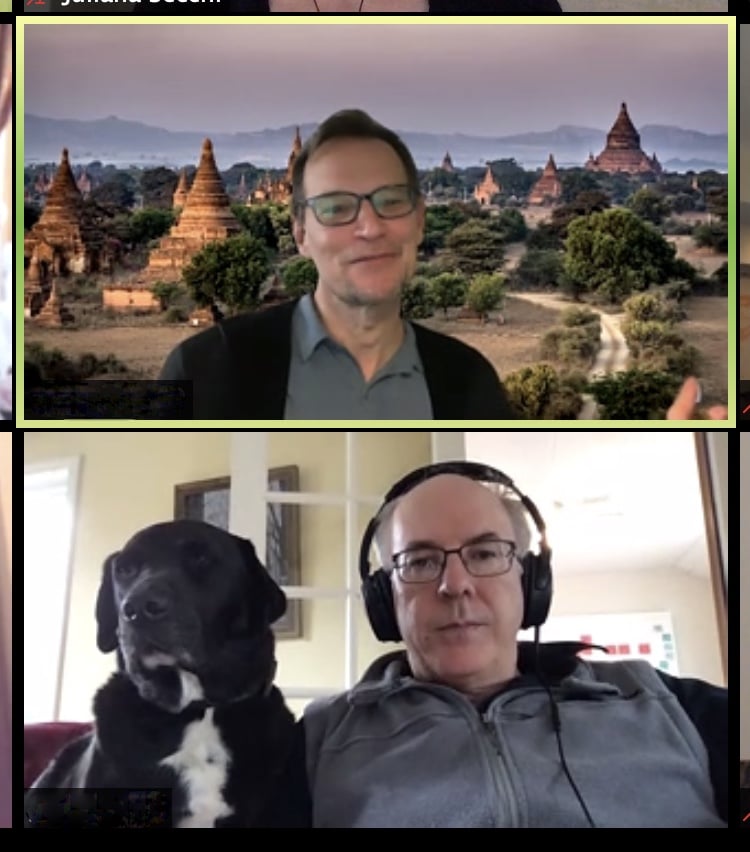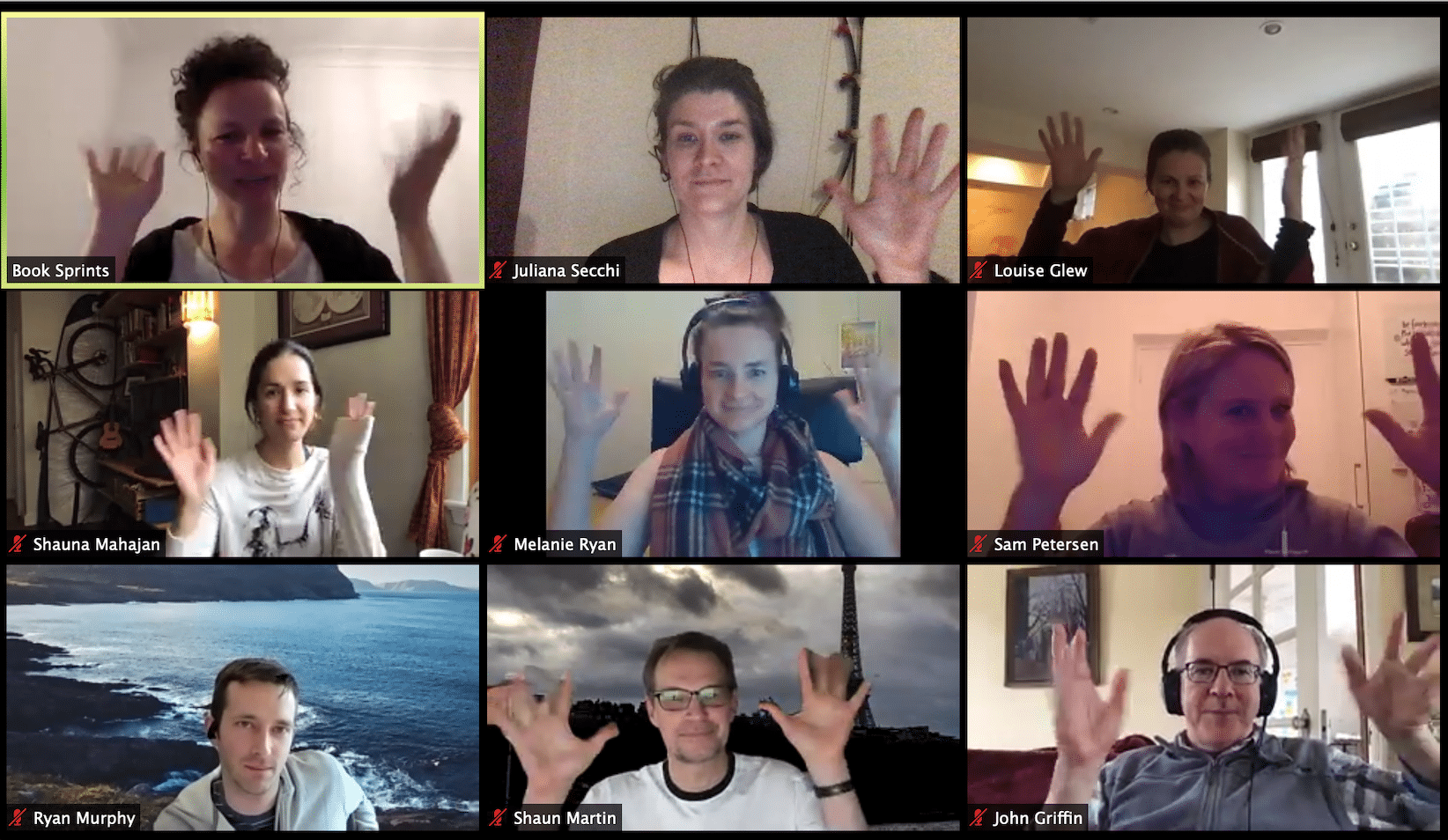WWF’s Systems Thinking Facilitation Kit – a virtual Book Sprint
Right after successfully completing our first virtual Book Sprint, it was time for our team to engage in a second. We gathered online with seven participants to write a book with World Wildlife Fund – WWF, on the topic of system thinking for conservation and development projects. The book is part of a broad initiative of trainings for practitioners working all over the world in WWF’s projects.
For each virtual Sprint, we design and customize a process for the specific group and their needs. One interesting aspect of facilitating virtually is the possibility to adjust the time plan combining synchronous and asynchronous periods with shorter or longer pauses. Synchronous time blocks are useful for group discussions and quick exchanges during writing periods. Asynchronous time blocks can be concentrated writing and editing periods for individuals or small groups, in their own timezone.
In our first virtual Book Sprint with Red Hat, the daily schedule had both synchronous and asynchronous time blocks for the participants located between the US West Coast and Eastern Europe. The group of software engineers needed little time for decision making, but covered a lot of content in writing, creating 55.000 words and around 50 diagrams.
In contrast, WWF’s topic required a lot of conversations, but rather short and concise text units. So we chose five days of synchronous work with all the participants to brainstorm, outline, and draft all units. The draft will now be revised over a period of one month, followed by a month of practical testing with a focus group. The group’s feedback will be integrated in an iteration sprint, onsite if travel restrictions allow, or virtual.

Two participants share their interests during one of the plenary sessions
Some of these authors took part in a WWF Book Sprint in 2018 on systems thinking. Where the first book focused on the principles of systems thinking, this new Sprint is the facilitation kit for practitioners already working with conservation and development projects, with practical tools and guidance for different processes.
The plenary discussions were many and fruitful. At the end of the fifth day, the group had reached its objective for this first phase: a consistent draft of the book with one full review. Over the next weeks, we will follow up with the participants on more reviews and possible additions from feedbacks on testing the procedures mentioned in the book.

A virtual round of applause to the authors at the end of 5 days
You can check some photos and videos of this facilitation process here: https://www.flickr.com/photos/booksprints/albums/72157714158926088
